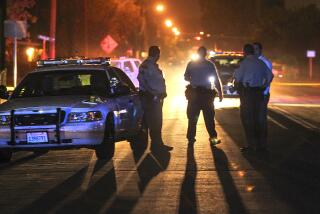Sacramento lawmakers poised to consider making child death records secret
The California Department of Social Services has quietly drafted a bill that would gut key portions of the state’s landmark law requiring child protective services agencies to release records when a youth dies of abuse or neglect. A vote is expected as early as Thursday.
Since the state implemented the law in 2008, reporters have had access to social worker case notes and other files that revealed glaring inadequacies in the state’s child welfare system, including instances of social workers disregarding policies and allowing children to remain in conditions that proved fatal.
In response to news stories based on those reports, state and county officials implemented a battery of child protection reforms that child welfare advocates credit with reducing the number of children who die because of abuse and neglect.
But the bill currently under consideration would relax deadlines for the release of records, and keep the names of social workers secret. It would deny the public access to original case notes, instead providing abbreviated summaries of how the government attempted to protect vulnerable children.
It would also exclude the public from reviewing case files concerning children who were killed by their parents’ boyfriends or girlfriends.
Although the siblings of children who died of abuse or neglect are already able to object to having information about them released, the new bill allows for the lawyers of children indirectly involved in the case to object as well.
Social services officials drafted the language in recent days for a “trailer bill” for the state budget, bypassing the usual committee review and fast-tracking the proposal for a vote.
The governor’s website for trailer bills features only a placeholder for the bill. Officials who wrote the bill shared a draft of it with a small group of child welfare advocates, a copy of which was obtained by The Times.
Pete Cervinka, the deputy director of the social services department who reportedly led efforts to draft the rollback, declined to answer questions about the proposal.
A spokesman noted that the department had not yet publicly introduced the language of the bill, which he said will implement a federal mandate to release records for the first time in cases where children are injured to the point that they are “near death.”
But Robert Fellmeth, director of the Children’s Advocacy Institute at the University of San Diego School of Law said he was dismayed by the proposed changes overall.
“We must not accede to the protectionism of the establishment,” said Fellmeth, who was among the attorneys who worked for years to win the mandate to disclose. He said that the public disclosure of such records is perhaps the only effective measure to fix problems when agencies make mistakes.
“We have just this – the little canaries in the cage who tell us something did not happen that perhaps needed to happen,” he said.
In 2013, for instance, The Times reported on the case of 8-year-old Gabriel Fernandez after someone cracked his skull, broke three ribs, burned and bruised his skin, knocked out two teeth and fired BBs into his lung and groin. He died of the wounds.
The newspaper found that social workers had investigated six reports of abuse but allowed Gabriel to stay with his birth mother and her boyfriend. Sheriff’s deputies separately investigated at least four additional reports but did not rescue the boy or cross-report the complaints to county welfare agencies.
The mother and boyfriend are facing murder charges in the case.
In the wake of Gabriel’s death, a blue ribbon commission appointed by Los Angeles County supervisors said the county’s current system was in a “state of emergency.” The commission’s report inspired a series of policy changes and spurred the county to invest in the child welfare safety net.
Bill Grimm, a senior attorney at the National Center for Youth Law who also lobbied for passage of the original law, said he was particularly troubled by the state’s proposal to allow a county spokesman to provide the press and public with their own summary of the case files.
“What we fought for was the production of the actual documents and not ... the county’s version of what happened,” he said.
It is not the first time the social services department has resisted the 2008 disclosure law.
In 2013, San Diego Superior Court Judge Judith Hayes ruled that the department had issued regulations “inconsistent and in conflict” with the law and had inappropriately limited the release of information.
Twitter: @gtherolf
More to Read
Start your day right
Sign up for Essential California for news, features and recommendations from the L.A. Times and beyond in your inbox six days a week.
You may occasionally receive promotional content from the Los Angeles Times.







